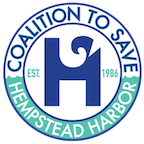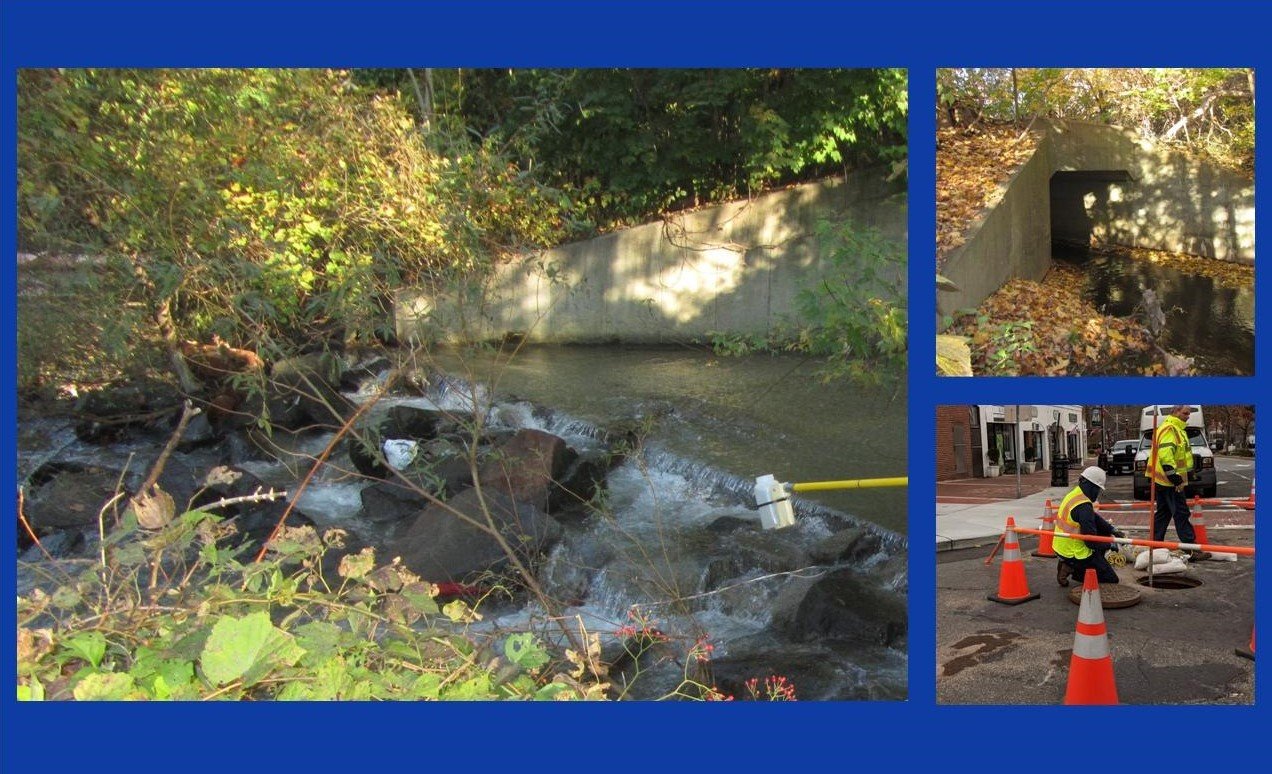Water Monitoring Helps Expose Sewer Line Break
During this past monitoring season, we noticed unusually high levels of bacteria in Glen Cove Creek. By the end of our monitoring season (October 28), bacteria levels were at their highest. CSHH alerted the Glen Cove DPW, Nassau County DPW and Department of Health, the Hempstead Harbor Protection Committee, as well as Suez (the operator of the sewage treatment plant) about the high bacteria counts throughout the creek, including near the STP plant. CSHH continued testing weekly through early December, adding new testing stations in order to narrow the location of the pollution source.
We met reps from Glen Cove DPW, Nassau County DPW, and Suez at Mill Pond on November 22 to plan the next day’s water-sample collection. On the day of the meeting, we received the video that a long-time Glen Cove resident had taken of a broken pipe under Bridge Street. Water samples were collected on November 23 to determine whether there were other “hot” spots throughout the stream system and confirm that the broken pipe in the video was the source of contamination.
All parties were informed of the data results. Suez scheduled work on November 29, confirmed that the broken pipe was a broken sewer line, and installed a bypass. We collected water samples in Glen Cove Creek on December 1, and lab results showed a dramatic decrease in the bacteria levels following the installation of the bypass, although the sample collected at the head of the creek still had a very high fecal coliform count.
The sewer line repair was completed by the end of the day on December 2. We collected another round of water samples from Glen Cove Creek on December 8, and lab results showed dramatically lower bacteria levels, well below thresholds that are used for beach closure standards.
The extra testing helped determine "hot" spots, within and near Mill Pond, and, alternatively, the low bacteria levels further upstream in Cedar Swamp Creek, which feeds into Mill Pond. CSHH sounded the alarms and brought together those who helped in the resolution of the problem. Continued monitoring of Hempstead Harbor is critical to the health of the harbor. This is why our work is needed and why we need your support.


